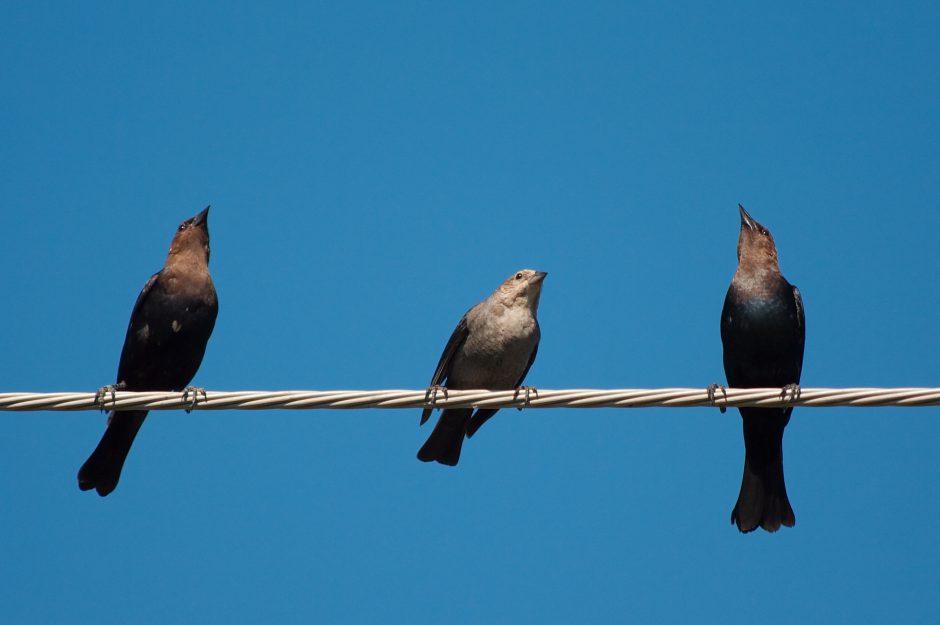D: You look exhausted, Yaël. Did you get to bed late?
Y: It’s not when I went to bed that’s the problem, it’s when I woke up. The birds in the tree outside my window have decided that early morning is the perfect time to start their singing.
D: I thought everyone loves waking up to birdsong.
Y: Not at 4 a.m.
D: That does make it sound less idyllic. What are they doing singing so early?
Y: Good question. Scientists have had a few theories: that it’s easier for the birds to make themselves heard because there’s less wind in the morning, or that there’s not much else to do when it’s still dark out. Another idea is that their early morning warbling is a warm-up—they have to start early to get good by daybreak. To test that last hypothesis, a research team recorded 11 male swamp sparrows between 2 a.m. and noon for two to three mornings each and then did a statistical analysis on the songs. They found that very early in the morning, the sparrows sing slowly or with a more limited range. It’s only around dawn, when they’ve been singing for a few hours, that their songs increase in tempo and expand their range of pitch. In short, the longer the birds sing, the better their songs get. It’s possible that female sparrows notice the more impressive singers and are more inclined to mate with them.
D: In this case the early bird doesn’t get the worm—it gets the girl.










